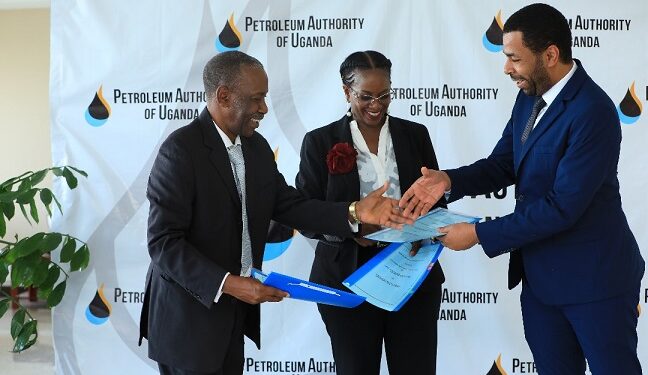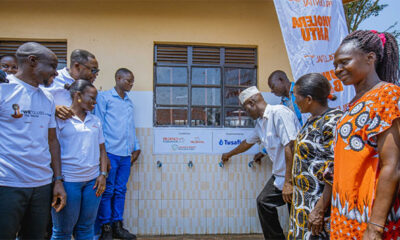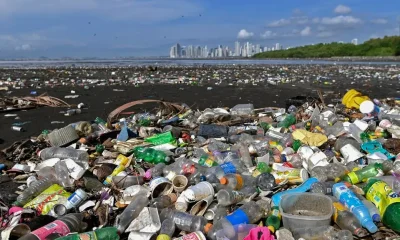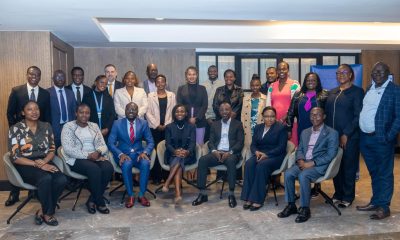Climate Change
East African Oil & Gas Regulators Formalise Cooperation: Uganda, Tanzania, Zanzibar Ink Tripartite MOU
In a landmark move poised to reshape the East African energy landscape, the Petroleum Authority of Uganda (PAU) on Tuesday formalised a crucial tripartite Memorandum of Understanding (MOU) with the Zanzibar Petroleum Regulatory Authority (ZPRA) and Tanzania’s Petroleum Upstream Regulatory Authority (PURA). Signed at the PAU headquarters in Entebbe, this agreement marks a significant step towards deeper regional cooperation in the burgeoning oil and gas sector.
Ms. Lynda Biribonwa, Chairperson of the Board of Directors at PAU, emphasised the strategic importance of this collaboration, noting that “the East African region is one of the most prolific frontier areas for Oil and Gas exploration and development.” She underscored that cooperation among regulators is “paramount to leverage on the existing expertise and resources,” particularly given the specialised, technologically driven, and capital-intensive nature of the industry. Biribonwa articulated a shared vision for the future, concluding, “Together, let us chart a transformative path forward for the petroleum industry in East Africa.”
The comprehensive MOU outlines cooperation in critical areas essential for sustainable and responsible energy development.1 These include petroleum resource management, robust cost monitoring and management frameworks, health, safety, and environmental standards, national content development to maximise local benefits, and extensive capacity building and knowledge exchange initiatives. Biribonwa expressed her satisfaction, stating, “I am happy that we can sign this MoU and take forward these areas of cooperation for the mutual benefit of our countries and sister institutions.”
This formalisation builds upon existing strong ties, particularly between Uganda and Tanzania, whose territories host the longest segment of the East African Crude Oil Pipeline (EACOP). Tanzania also holds a direct stake in the EACOP, the vital infrastructure project designed to transport Uganda’s crude oil from the Albertine Graben to the international market.
Mr. Halfani R. Halfani, Board Chair at Tanzania’s Petroleum Upstream Regulatory Authority (PURA), reflected on the long-standing informal relationship in oil and gas between Uganda and Tanzania, highlighting the need to “formalise it so that it becomes sustainable.”3 He added that “This MoU will facilitate sharing best practices, so that the region can maintain the capability to bring in investment in the region,” underscoring the agreement’s role in attracting and retaining crucial investments.
Mr. Muhammed S. Said, the Managing Director of Zanzibar Petroleum Regulatory Authority (ZPRA), underscored the collective benefit of the partnership. He explained that by “putting all of our resources together, we can all learn from each other and see how we take the industry forward for the benefit of all.” Mr. Charles J. Sangweni, Director General of PURA, revealed that discussions for this tripartite MOU commenced approximately a year ago, anticipating that the agreement “will strengthen our bonds” and facilitate “pertinent issues regarding exchanging of data and exchanging experience through capacity building of our technical team.” Sangweni also expressed optimism for broader regional cooperation, hinting at potential future agreements with other East African nations, with Kenya as a possible next step.
The collaboration cemented by this MOU is expected to foster shared growth and expertise across the region, embodying the spirit of the regional proverb, “Umoja ni nguvu” – unity is strength. As part of the visit, the Tanzanian and Zanzibari delegations will also tour Uganda’s oil and gas operational areas in the Albertine Graben, gaining firsthand insight into the progress as Uganda steadily prepares for First Oil production.
Comments



















